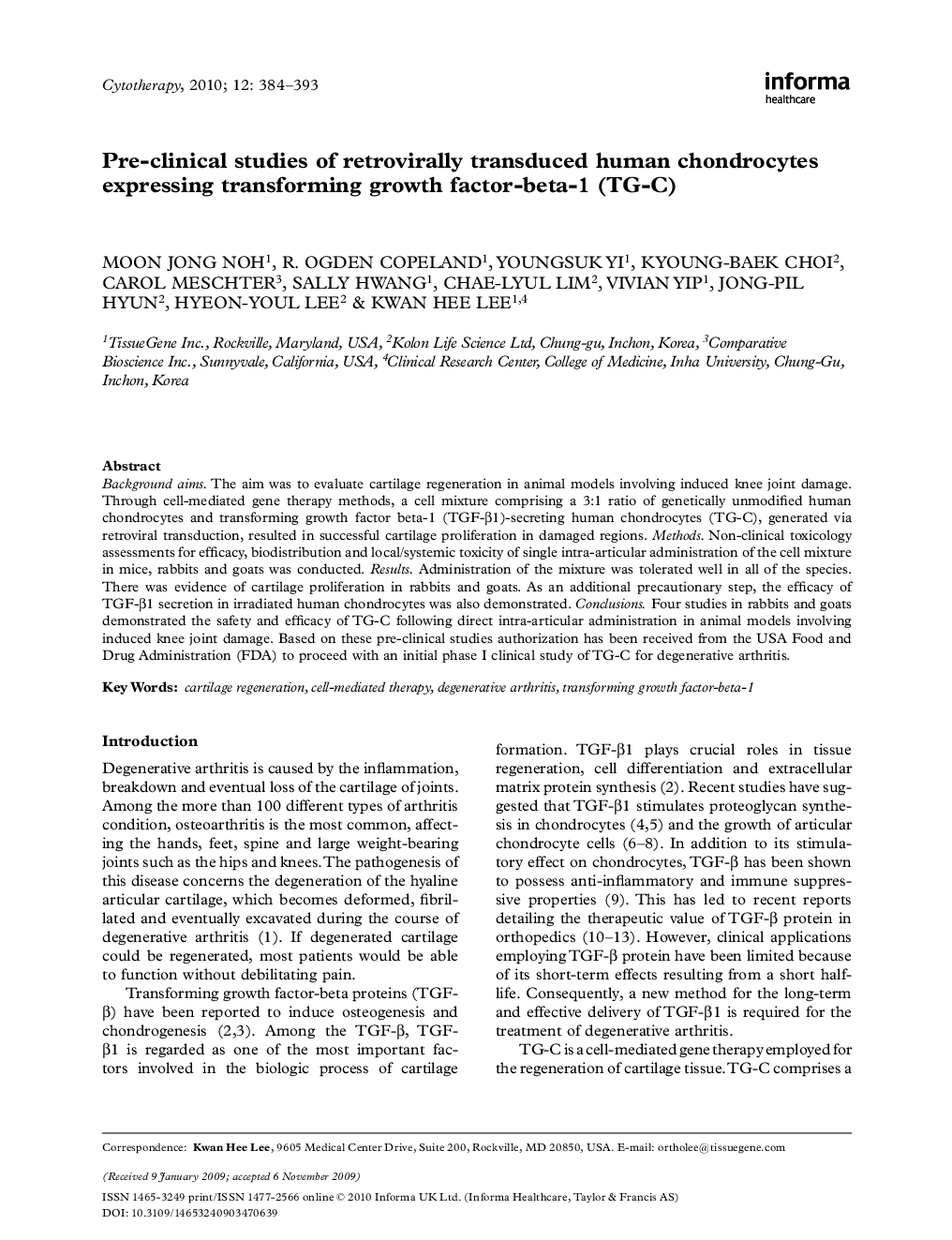| Article ID | Journal | Published Year | Pages | File Type |
|---|---|---|---|---|
| 2172079 | Cytotherapy | 2010 | 10 Pages |
Background aimsThe aim was to evaluate cartilage regeneration in animal models involving induced knee joint damage. Through cell-mediated gene therapy methods, a cell mixture comprising a 3:1 ratio of genetically unmodified human chondrocytes and transforming growth factor beta-1 (TGF-β1)-secreting human chondrocytes (TG-C), generated via retroviral transduction, resulted in successful cartilage proliferation in damaged regions.MethodsNon-clinical toxicology assessments for efficacy, biodistribution and local/systemic toxicity of single intra-articular administration of the cell mixture in mice, rabbits and goats was conducted.ResultsAdministration of the mixture was tolerated well in all of the species. There was evidence of cartilage proliferation in rabbits and goats. As an additional precautionary step, the efficacy of TGF-β1 secretion in irradiated human chondrocytes was also demonstrated.ConclusionsFour studies in rabbits and goats demonstrated the safety and efficacy of TG-C following direct intra-articular administration in animal models involving induced knee joint damage. Based on these pre-clinical studies authorization has been received from the USA Food and Drug Administration (FDA) to proceed with an initial phase I clinical study of TG-C for degenerative arthritis.
